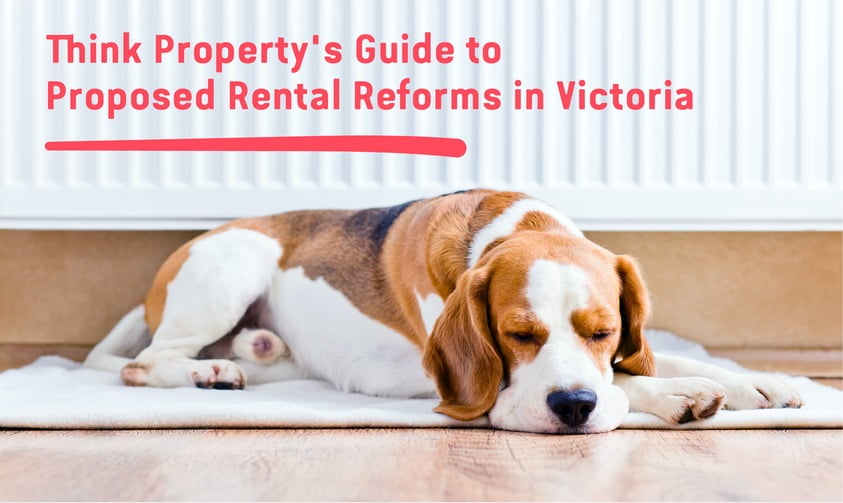Recently, a host of prospective rental reforms were announced by the Victorian Government in a bid to make the rental market fairer for tenants.
Across 14 proposed reforms – addressing everything from notices to vacate through to tenants with pets – the Government are looking to renegotiate the leasing market as we know it. In today’s blog, Think Property & Co opine on the proposed changes, and how they might affect the wider economy – landlords and tenants included.
Tenant Modifications
The proposed changes notably feature a relaxed approach to modifications within a lease property – allowing tenants the freedom to make ‘minor modifications’ to a home. In reality, this liberty would soon have tenants up ladders, painting walls pink to match their new couch – or attempting to hang new light fittings. By encouraging this ‘freedom’, we’re potentially putting tenant safety at risk – as not everybody has the skills required to carry out modifications without professional assistance. This will impact on the level of insurance required for the property, should falls or injuries occur as a result. Additionally, there’s scant detail on rectifying modifications to leased properties upon their return to the landlord. Who will be responsible for repainting pink walls, haphazardly concreted courtyards and similar?
Disclosure of Intention to Sell
The reforms also recommend there should be a pre-contractual disclosure by landlords regarding asbestos in a property, and any intention to sell in the future. Asbestos being present in a home is a health issue that should be addressed – but a landlord’s intention to sell is a different matter. Quite often, a landlord may only realise half way through a lease that they need to sell. They will be unable ti disclose intention to sell simply because they don’t intend to sell at the time of letting. Selling mid-lease isn’t ideal, and landlords will usually only do so for personal reasons. Whether their need to sell is the result of a marriage breakdown or financial difficulty, a landlord should be able to sell their asset when they must. This doesn’t affect the agreed-upon duration of any signed lease, naturally.
Rental Increase Restrictions
There are proposed restrictions on rental increases, too. Rather than being able to request a rental increase every six months, the proposed measure restrict landlords to rental increases once annually. While this may sound like a good outcome for tenants, in reality it merges two incremental rises into one larger single increase, making the management of cash flow more challenging.
Pets in Rental Properties
The most notable of the reforms concerns pets. Currently, landlords have the right to refuse pets of any kind in their investment properties – but new laws would give all tenants the right to keep pets in their leased property, with landlords only able to refuse with ‘good reason’. The issue of most concern here is suitability and capacity. Not every property is designed for pets, and not every tenant is equipped to provide the care that animal needs. With more people working longer hours, pets can be left alone for hours on end. Their isolation increases the risk of damage to carpets, walls and furniture – in addition to the potential of disruption to neighbouring dwellings. As property managers, we have found pets abandoned in properties on numerous occasions, ruining brand new floors and carpets.
Other Changes of Note
Other proposed reforms include restrictions on notices to vacate, and caps to bonds. Caps to bonds are particularly counter-intuitive, as the introduction of more pets into the rental market should bring with it a suitably larger bond to account for any potential damages. Along with changes to rental ‘bidding’, blacklisting dodgy landlords, early bond release and faster tenant reimbursement for urgent repairs – the leasing landscape in Victoria is on the cusp of momentous change.
At Think Property & Co, our experienced team of property managers acknowledges that some of these changes may be beneficial – but further consultation with the industry should be undertaken before reforms come into law. All new measures should be in both the landlords’ bet interests – and the tenants – remembering that the landlord is bearing most financial risk.

